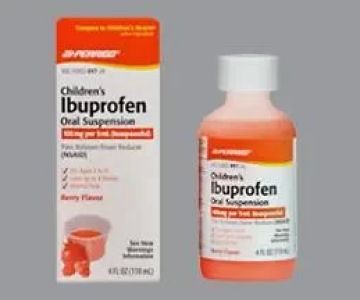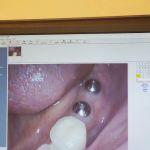Understanding Systemic Oral Steroids in Children
Systemic oral steroids are powerful medications frequently prescribed to children for a variety of medical conditions involving inflammation and immune system responses. Unlike topical steroids that are applied to the skin, systemic steroids are taken orally and affect the entire body, making them effective for conditions that require widespread treatment.
Parents often ask, what is systemic steroids oral in children and how these medications work. These steroids mimic natural hormones produced by the adrenal glands, reducing inflammation and suppressing overactive immune responses. They are used carefully in pediatric care due to their potency and potential side effects.
Common Medical Conditions Treated with Oral Systemic Steroids in Pediatrics
1. Asthma and Respiratory Conditions
Children suffering from moderate to severe asthma often benefit from oral systemic steroids during flare-ups. These steroids help reduce airway inflammation, making breathing easier and preventing hospitalizations.
2. Autoimmune Disorders
Diseases such as juvenile idiopathic arthritis and lupus are treated with systemic steroids to manage inflammation and pain. Oral steroids can improve quality of life by controlling disease activity in children.
3. Allergic Reactions and Skin Conditions
Severe allergic reactions and chronic skin conditions like eczema or dermatitis may require short courses of oral steroids to calm symptoms that topical treatments cannot fully address.
How Systemic Oral Steroids Work in Children’s Bodies
When taken orally, systemic steroids enter the bloodstream and impact cells throughout the body. They suppress the immune system’s inflammatory signals, reducing swelling, redness, and tissue damage. This systemic approach contrasts with localized treatments and explains why steroids can be very effective but also why careful dosing is essential in children.
The goal is to provide enough medication to control symptoms while minimizing potential risks. Pediatricians carefully monitor children on systemic steroids to adjust doses and prevent complications.
Potential Side Effects and Risks of Oral Systemic Steroids in Children
1. Growth Suppression Concerns
One of the biggest concerns for parents is the potential impact on a child’s growth. Long-term or high-dose steroid use can slow bone growth, so doctors aim to use the lowest effective dose for the shortest duration possible.
2. Immune System Suppression
Because steroids suppress immune function, children may become more vulnerable to infections. Extra precautions and monitoring help manage this risk.
3. Behavioral and Mood Changes
Some children may experience mood swings, irritability, or difficulty sleeping during steroid treatment. Open communication with healthcare providers helps address these challenges.
4. Other Side Effects
Additional effects can include increased appetite, weight gain, and stomach upset. Awareness and supportive care are important components of pediatric steroid management.
Real-Life Story: Managing Pediatric Asthma with Oral Steroids
Consider the case of 8-year-old Liam from California, who suffered frequent severe asthma attacks. After several hospital visits, his doctor prescribed a carefully monitored course of oral systemic steroids during flare-ups. The treatment dramatically reduced Liam’s symptoms and hospitalizations, allowing him to enjoy school and outdoor activities.
Liam’s parents closely followed medical advice and communicated regularly with their healthcare team, balancing treatment benefits with awareness of possible side effects. This story illustrates how systemic oral steroids can be life-changing for children with chronic conditions when managed properly.
Guidelines for Parents: Ensuring Safe Use of Oral Steroids in Children
Parents play a vital role in managing systemic steroid therapy for their children. Clear understanding of the medication schedule, monitoring for side effects, and maintaining regular follow-ups with pediatricians are essential. Never adjust or stop steroid doses without consulting healthcare providers, as sudden changes can cause serious health issues.
Diet, physical activity, and infection prevention strategies also support children during steroid treatment. Educating family members and schools about the child’s medication needs promotes safety and support in everyday environments.
Where to Find Expert Pediatric Steroid Care and Advice
For families seeking trusted information and services related to pediatric systemic steroid treatments, Dentistry Toothtruth offers valuable resources and referrals to experienced healthcare providers across the U.S. Access to specialized care ensures children receive tailored treatment plans that prioritize both effectiveness and safety.
Understanding what systemic steroids oral in children entails empowers parents to advocate for their child’s health confidently and make informed decisions in partnership with medical professionals.






 Access Health Dental4.0 (280 review)
Access Health Dental4.0 (280 review) Gurnee Dental Care: Gary C Kaplan, DDS5.0 (1 review)
Gurnee Dental Care: Gary C Kaplan, DDS5.0 (1 review) Prosthodontics of Ho-Ho-Kus: Michael W. Klotz, DMD, MDentSc, FACP4.0 (27 review)
Prosthodontics of Ho-Ho-Kus: Michael W. Klotz, DMD, MDentSc, FACP4.0 (27 review) The Aligner Studio4.0 (70 review)
The Aligner Studio4.0 (70 review) Drs. Rosen & Dworkin, PA - Family and Cosmetic Dentistry4.0 (1597 review)
Drs. Rosen & Dworkin, PA - Family and Cosmetic Dentistry4.0 (1597 review) Norman, Obeck and Foy Dentistry5.0 (1059 review)
Norman, Obeck and Foy Dentistry5.0 (1059 review) The Importance of Oral Health Education During Pregnancy for a Healthy Pregnancy
The Importance of Oral Health Education During Pregnancy for a Healthy Pregnancy Best Tips for Brushing Your Teeth Properly for Healthy Gums: Essential Techniques for Oral Health
Best Tips for Brushing Your Teeth Properly for Healthy Gums: Essential Techniques for Oral Health Why Skipping Dental Checkups Can Lead to Bigger Oral Health Problems
Why Skipping Dental Checkups Can Lead to Bigger Oral Health Problems Advantages of Porcelain Dental Restorations
Advantages of Porcelain Dental Restorations How Can Diabetes Cause Tooth and Gum Problems? Preventing and Managing Oral Health Issues
How Can Diabetes Cause Tooth and Gum Problems? Preventing and Managing Oral Health Issues Healthy Habits for Promoting Good Oral Health and Hygiene: Tips for a Healthy Smile
Healthy Habits for Promoting Good Oral Health and Hygiene: Tips for a Healthy Smile